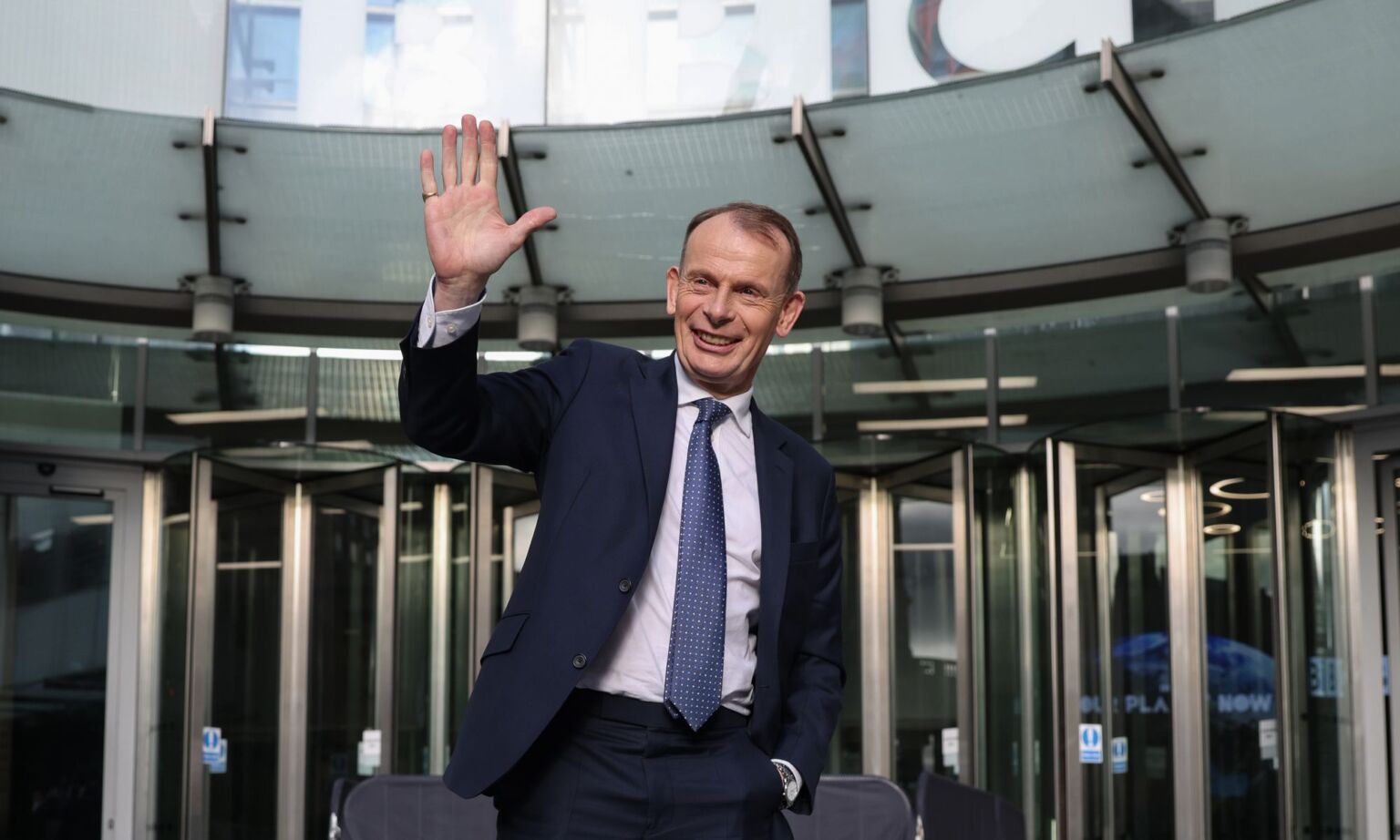
Long-read
No country for old BBC men
Left-ish media men like Andrew Marr rail against a world they no longer understand.
Want unlimited, ad-free access? Become a spiked supporter.
Veteran broadcaster Andrew Marr quit the BBC in 2021 after 20 years, claiming he needed to get his voice back. ‘I’m free to speak my mind now’, he declared, following his departure. According to Marr, the ‘insane’ impartiality rules imposed on BBC journalists were impacting on his private life: ‘I was self-censoring on air, and then self-censoring in front of family and friends, and even not saying what I really thought in the pub with friends.’
It sounds ironic in retrospect, given the extent of the BBC’s partiality, as revealed in Michael Prescott’s leaked internal memo. This showed that Panorama had ‘doctored’ a speech by President Trump; that BBC Arabic had given hundreds of on-air appearances to anti-Semites, including a man who once suggested Jews should be burned ‘as Hitler did’; and that BBC News’s ‘specialist LGBTQ desk’ ensured that stories that shed a critical light on the trans agenda were not covered. The revelations contained within the memo led to the resignations of director-general Tim Davie and BBC News chief Deborah Turness.
Indeed, the partisan outlook of the BBC was already the stuff of legend, long before Marr finally felt the need to liberate himself from its alleged impartiality rules – something he himself noted as far back as 2006: ‘The BBC is not impartial or neutral. It has a liberal bias not so much a party-political bias.’
Representing a type of media man and a particular worldview, Marr is worth looking at in a bit of detail. He captures the fate of an archetype – that of an ageing left-ish journalist, clinging to a media establishment and an elite worldview that are both now crumbling.
Marr spent 16 years of his BBC tenure fronting BBC One’s Sunday morning politics show, The Andrew Marr Show. His take on journalism is covered in his 2004 book, My Trade, shortlisted for the Orwell Prize the following year. (I finished first with The Likes Of Us – if memory serves, Marr attributed my win to the meritocracy of Blair’s Britain in his Telegraph column the following day.) He believes that journalism is ‘nine-tenths being in the right places at the right time’. At the BBC it was helped by moving in the right circles while holding the right views. Coming from an upper-middle-class background, complete with a private-school education, a degree from Cambridge and the obligatory leftist politics, Marr was ideal BBC fodder. Although he describes himself as ‘slightly to the left’, he was nicknamed ‘Red Andy’ during his student years. In this he was not alone.
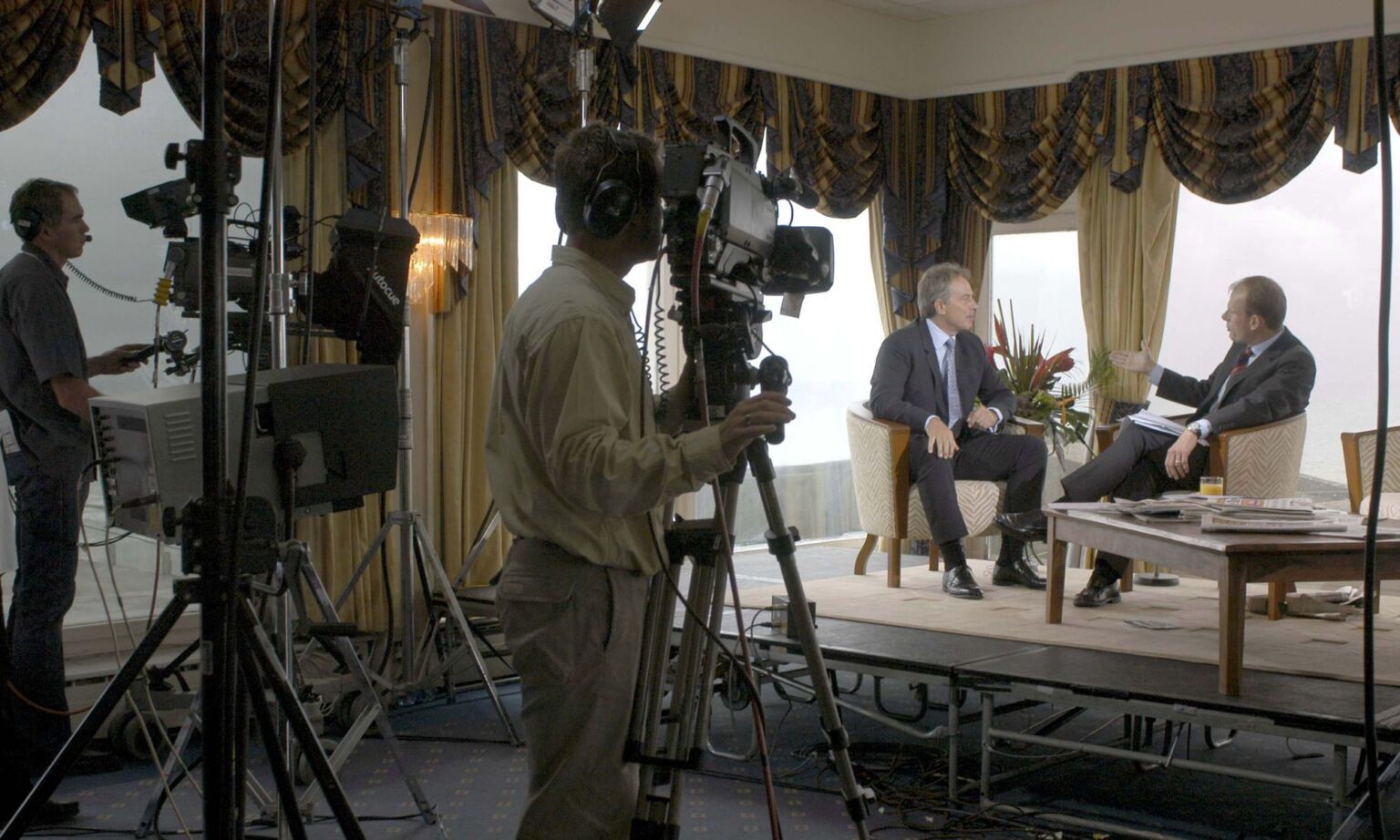
The ailing mainstream media is littered with similar middle-class men in late middle age, who were once left-wing students of a similar standing and background, but who softened in their politics or suppressed their voices, because their ambition to be columnists or anchormen was greater. As they drift towards their dotage, they appear to have been boosted by a renewed verve that’s ignited the revolutionary zeal of their agitprop years. Much of this is relayed in their social-media accounts: I’m free to speak my mind. These days they continue to sign in as radicals, railing against the ‘nationalists’ and ‘Brexiteers’ who challenge their views and status. Despite their radical posturing, the relic from the past they cling to, the institution that summons the reactionary within them, is the BBC.
Alongside Marr in this camp, there’s journalist and sometime BBC broadcaster David Aaronovitch, and former BBC Newsnight economics editor Paul Mason, who according to some has regressed to the role of a student revolutionary. They have minor differences on political points, but they are united when outsiders criticise Auntie Beeb. They’re backed up by fellow travellers in the same trade, such as Will Hutton, John Simpson and Adam Boulton. The latter believes that the right-leaning GB News should be shut down as it affects the ‘delicate ecology’ of British broadcasting.
They are all, in their different ways, opposed to the populist revolt that has gripped Britain since Brexit in 2016. Mason implied recently that the Union flag-flying ‘Unite the Kingdom’ march in September recalled the rise of Nazism during the 1930s. ‘Paul Mason is running out of insults for the ordinary working man and woman who refuse to pander to his obsequious endorsement of the criminal uselessness of the Labour Party’, wrote Austin Williams, co-editor of The Future of Community, in response. David Aaronovitch re-posted Williams’s tweet on X, commenting: ‘an architecture critic writes’. The implication being Williams was not a journalist with the calibre and BBC pedigree of Mason. Or of Aaronovitch himself, a former president of the National Union of Students, who once appeared on University Challenge, where his team made the radical move of answering every question wrongly with the name of a revolutionary: Trotsky… Lenin… Che…
Aaronovitch is the Hampstead-born, middle-class child of well-connected communists, while Mason stems from humble northern origins, although he’s now arguably more vocal in expressing his contempt for the white working class – a demographic he previously dismissed as a conceit. ‘To me, “white working class” is like the word “coolie” – created by imperialists to impose an identity on the people they wanted to rule’, Mason informed the Idler magazine in 2019. ‘Michael Collins started using the term in the early 2000s with The Likes of Us’, he said, referencing myself, ‘and what he describes is real: the antipathy towards modernity and the white flight from the inner city to places like Essex. But it is driven by a disappointment and nostalgia for the many good parts of that world that have gone.’
If the term was created by anyone, it was created by a left-leaning cultural elite that controls the narrative on race, faith and class. Created, that is, by those who paradoxically claim that the white working class doesn’t exist while casting it as the fall guy. Marr at least reflected on this constituency’s concerns in his book, A History of Modern Britain (2007), while at the same time implying its members were racist: ‘The majority of British people did not want the arrival of large numbers of blacks and Asians, just as they did not want an end to capital punishment, or deep British involvement in the European Union, or many of the other things the political elite has opted for.’ David Aaronovitch at least concedes that self-righteousness is a shortcoming of the middle-class left, as he notes in a 2017 piece about Corbynistas: ‘When you add the sense of entitlement that is characteristic of so many of the younger middle-class people in Britain, you can end up with an impatience with compromise coupled to a belief that anything that is strongly felt must somehow be enacted.’
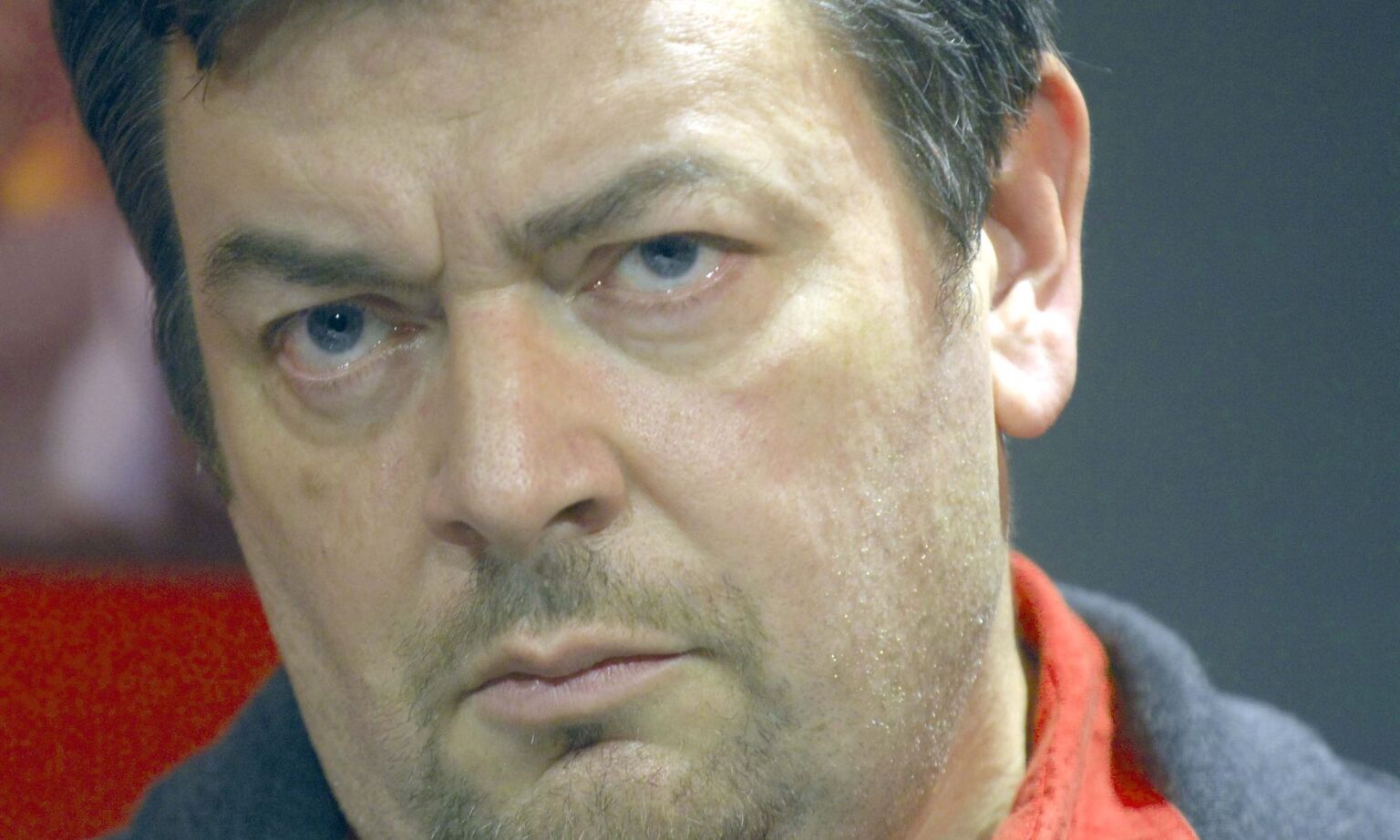
Writers such as Marr, Mason and Aaronovitch were once left-wing student activists, highlighting the plight of the proletariat. That was before the working classes failed to fit the image they and the rest of the middle-class left had imposed on them. Now these pundits harbour a contempt for those within this demographic, whatever their ethnicity, who express the wrong views on mass immigration, asylum hotels, the EU and the BBC. Reflecting on the Unite the Kingdom march in September, Marr wrote:
‘The much-photographed crowds waving St George’s and Union flags are statistically tiny compared with the wider electorate who are quietly watching. And yet a single misstep, a death, a fire, could change the mood. The same “small crowd” point is true of the periodic public displays by Islamists.’
Diminishing the numbers of disaffected Britons, along with the crimes committed by Islamist extremists is at least an improvement on castigating the former as racists, and the latter as victims. Even middle-class, left-wing broadsheet journalists and BBC loyalists are starting to acknowledge that members of the ‘correct’ identity groups sometimes do bad things.
Still, a contempt persists for the current breed of working-class protester, accompanied by an abhorrence for citizen journalists, online news media and podcasters addressing the issues that have forced them on to the streets.
‘The business of funding digging journalists is important to encourage’, Andrew Marr informed the Independent in 2008. ‘It cannot be replaced by bloggers who don’t have access to politicians, who don’t have easy access to official documents, who aren’t able to buttonhole people in power.’ At the Cheltenham Literary Festival two years later, he was dismissing these online upstarts as ‘socially inadequate, pimpled, single, slightly seedy, bald, cauliflower-nosed young men sitting in their mother’s basements and ranting. They are very angry people.’ And there’s more: ‘So-called citizen journalism is the spewings and rantings of very drunk people late at night.’
But the media world is changing. In the US, major networks are looking to online media for a lead as ratings for legacy media decline. CBS has enlisted Bari Weiss as editor-in-chief of CBS News, a few short years after she was bullied out of the New York Times before she slowly built up a multi-million dollar online empire with the Free Press.
Some BBC stalwarts have, like Marr, perhaps seen where things are heading, and jumped ship to be free to express their old ideas on new media. Emily Maitlis and John Sopel created the News Agents podcast for this purpose. Oxbridge-educated Maitlis now doubles down on the smug but deluded sense of class-based superiority that has become her stock-in-trade. Never has she seemed more out of place as when she deigned to take her podcast to Clacton on the eve of the General Election last year. Nigel Farage is now Clacton’s MP.
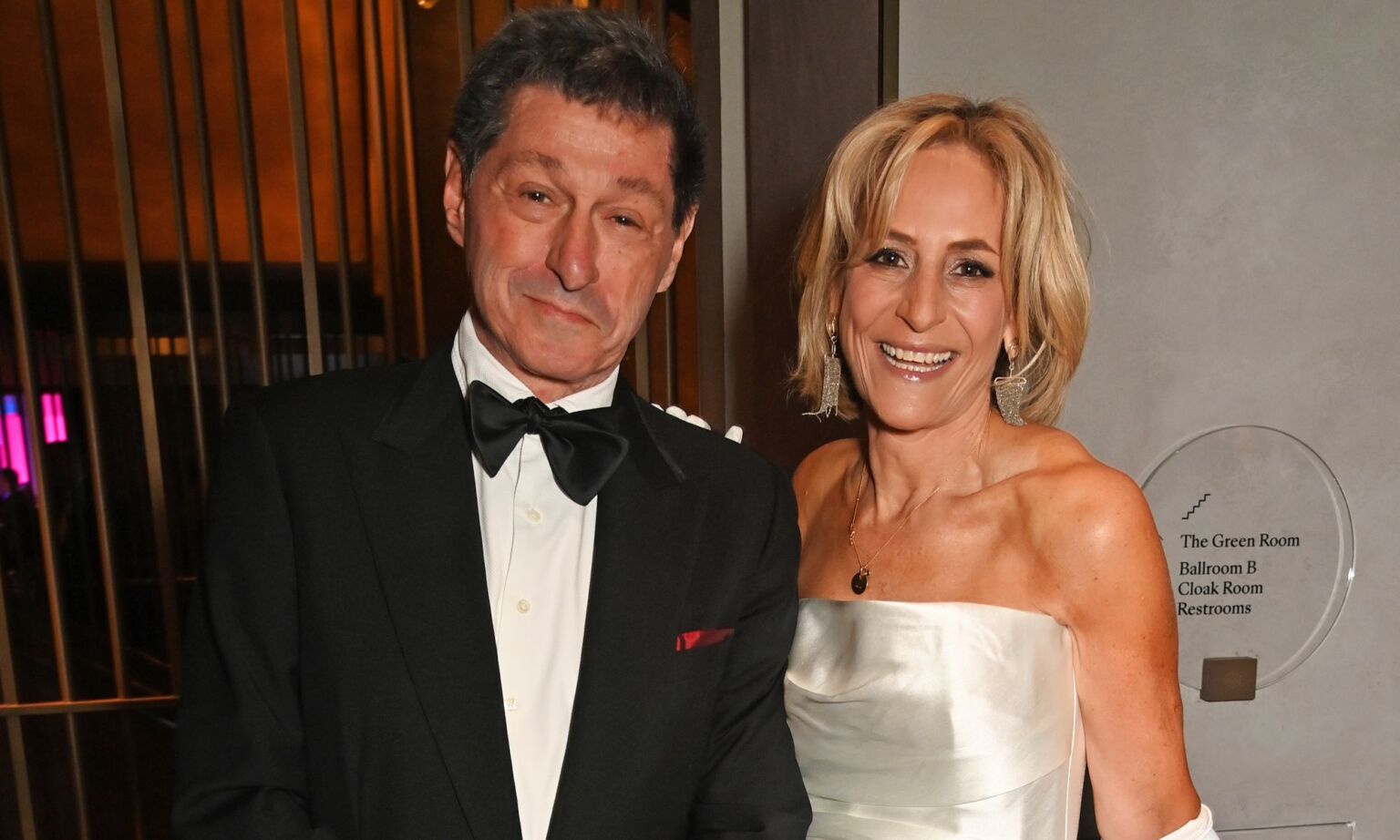
Andrew Marr, meanwhile, prides himself on being able to take on people from all walks of life. An editor-at-large of the New Statesman, he’s now at LBC, stablemate of another fellow traveller and former BBC panjandrum, James O’Brien. ‘Verbally, I’m quite fast on my feet’, Marr informed us in 2017. ‘I could embarrass or anger most people if I wanted to.’ He attempted this on his LBC show Tonight with Andrew Marr in March last year, while interviewing John Lydon, the former Sex Pistol, whose championing of anarchy in the UK would have appealed to ‘Red Andy’ throughout his agitprop years in the age of punk. The former Johnny Rotten railed against mass immigration, illegal or otherwise, and the impact on the urban working-class stock that made him. Marr was thinking on his feet, ready to embarrass and anger this former Sex Pistol, by reminding Lydon his parents were Irish immigrants. His interviewee subsequently schooled Marr on the difference between being Irish in England, sharing the same culture and values, and being a migrant opposed to integrating with the citizens of the country that takes you in.
A further example of Marr thinking on his feet was evident on his return to the BBC as a panellist on Question Time, following the election of the Labour government in 2024. He was free from the self-censorship he imposed on himself when working for the BBC, and indeed in the company of friends, and even in the company of family at the Primrose Hill home he shares with his wife, former Guardian journalist Jackie Ashley. ‘For the first time in many of our lives’, he sighed, as the select BBC audience nodded sympathetically, ‘Britain looks like a little haven of peace and stability’.
One year later, the serenity Marr detected is less apparent. Yet it’s not the failures of the current administration that concern him, but those who dare to highlight these failures beyond the confines of mainstream media and regime journalism. Marr accuses social media of ‘selling ringside seats for a carnival of hatred, designed to tear us all apart’, while acknowledging that migration is changing the country at ‘a scale and velocity we’ve never seen before’. This implies he believes the ‘Pink Ladies’ protesters outside asylum hotels might have a point. ‘There are many decent people among the protesters, just as there are inside the migrant hotels’, he wrote recently in the New Statesman. ‘Though [the protests] are spectacles, and fuel for social-media polemic.’
There it is again, the predictable, safe response that’s almost an attempt at impartiality. Marr, like many other ageing upper-middle-class media types, overlooks the ordinary women and men who dominate these protests, who don’t have the luxury of assuming that illegal male immigrants arriving on their streets are all decent people. What concerns them are the knife attacks that don’t have an impact on media pundits holed up in Primrose Hill, and the sexual assaults that don’t affect their Guardian wives. These protesters have never before been forced to take to the streets to have their voices heard. They don’t have that middle-class sense of entitlement that David Aaronovitch alluded to when writing that ‘anything that is strongly felt must somehow be enacted’.
Following last week’s proposals from home secretary Shabana Mahmood to tackle the immigration crisis, Marr delivered a rant on his LBC show, that concluded:
‘Let’s be real. This today, is a massive victory for all of those who waved English, Scottish and British flags outside asylum hotels. And for the politicians and broadcasters, who cheered them on. And all of those around the country who said to pollsters they were going to vote Reform. The so-called Overton window, if you like, of the acceptable, has well and truly shifted.’
This is not the view of a journalist who thinks on his feet, but the rhetoric of a middle-class man who’s dragged the political posturing of his student years into late middle age, like other former Red Andys of his era who campaigned for the world to change. Well, it did change, but they didn’t. They offer no new solutions to these problems, preferring instead to shower tired slurs and insults on those that need solutions, because they live with the problems.
It’s not the protesters outside asylum hotels who are clinging to the past, it’s the likes of Marr, Aaronovitch and those fellow travellers in the same trade, loyal to the memory of a BBC that is no more, and a wider legacy media that is crumbling around them.
Michael Collins is a writer, journalist and broadcaster. He is the author of The Likes Of Us: A Biography of the White Working Class.
You’ve hit your monthly free article limit.
Support spiked and get unlimited access.
Support spiked and get unlimited access
spiked is funded by readers like you. Only 0.1% of regular readers currently support us. If just 1% did, we could grow our team and step up the fight for free speech and democracy.
Become a spiked supporter and enjoy unlimited, ad-free access, bonus content and exclusive events – while helping to keep independent journalism alive.
Monthly support makes the biggest difference. Thank you.




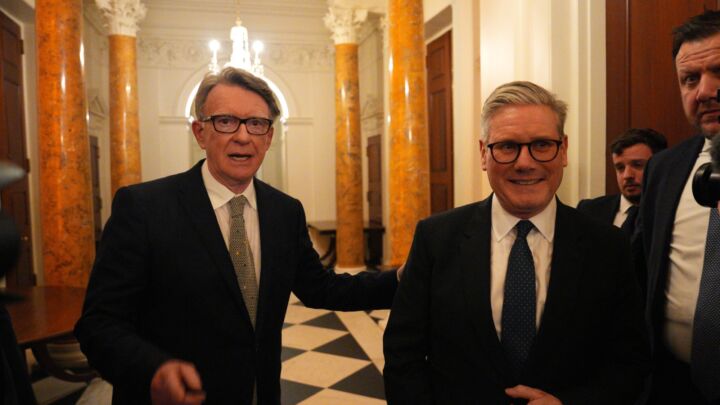


Comments
Want to join the conversation?
Only spiked supporters and patrons, who donate regularly to us, can comment on our articles.